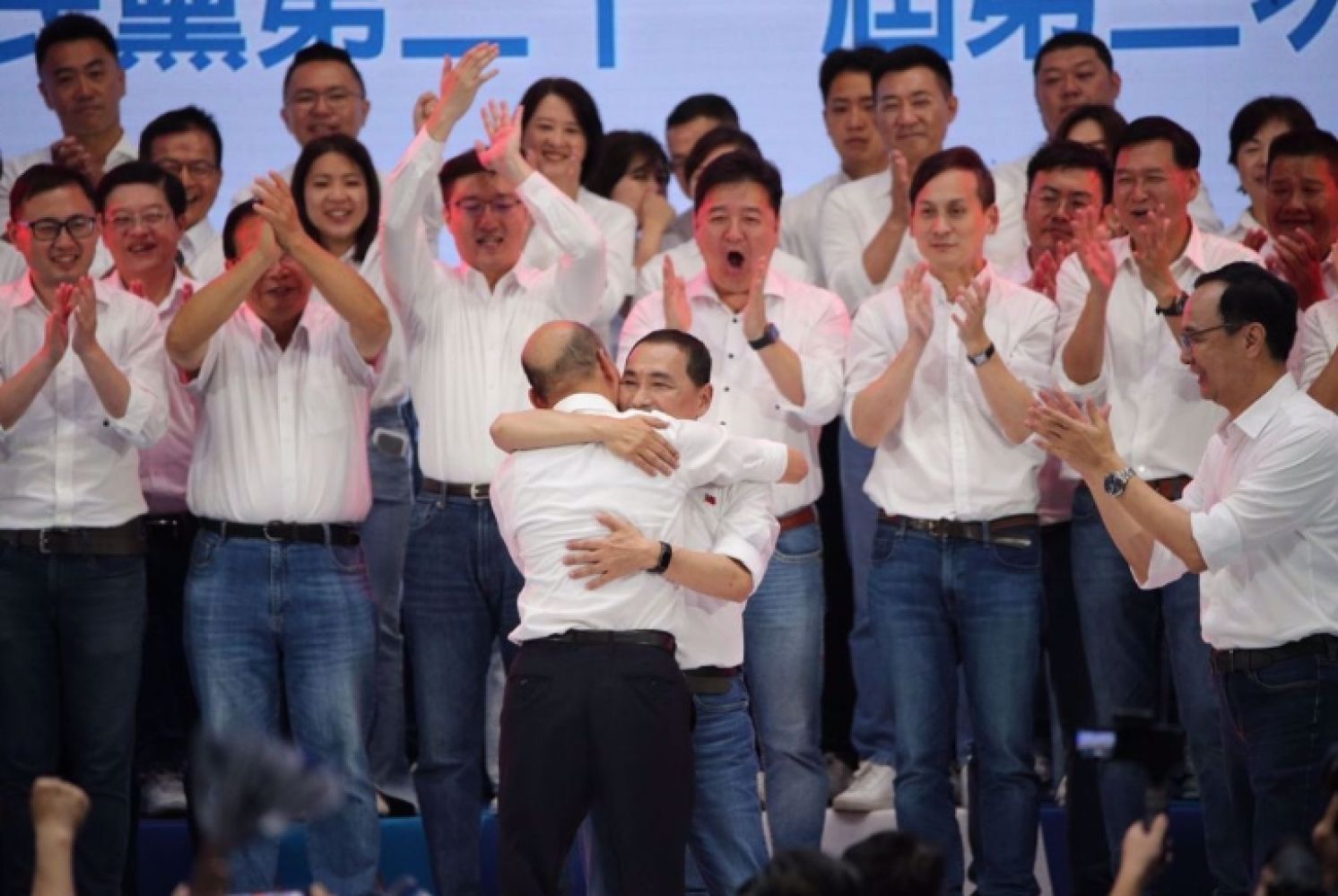
This Week in Taiwan 0716-0722
July 17: Vice President William Lai will serve as a special envoy to attend the presidential inauguration of Santiago Peña in Paraguay. Mr. Lai's expected transit stop in the United States has attracted scrutiny. Xie Feng, mainland China's ambassador to the United States, stated that Taiwan is the most important and sensitive issue in U.S.-China relations and that the presumptuous behavior of Taiwan independence activists should be stopped. The top priority is to resolutely block Mr. Lai's visit to the United States, Feng added.
Kuomintang (KMT) presidential candidate Hou Yu-ih is planning to visit the United States in early September. Taiwan People's Party (TPP) presidential candidate Ko Wen-je, who visited the United States in April, is reported to be considering a second visit to the United States.
July 18: The U.S.-Taiwan Monterey Talks closed in Washington. According to the United Daily News, the United States will sell Taiwan National Advanced Surface-to-Air Defense Missile Systems 2 (NASAMS 2) to strengthen the field air defense deployment of important political and economic strongholds and missile command mechanisms, and to counter drones. The Air Force plans to purchase NASAMS systems for four companies and 16 platoons from the United States. Minister of National Defense Chiu Kuo-cheng confirmed that work is underway.
July 18: In his latest interview, former U.S. President Donald Trump stated that he would not answer the question of whether the United States should help defend Taiwan if it means going to war with China because it would put him in a very bad negotiating position if he were the president. Mr. Trump called himself a good friend of Xi Jinping, accused Taiwan of taking away U.S. chip business, which should have been stopped long ago. He even stated that tariffs should be imposed against Taiwan.
The Executive Yuan and Ministry of Foreign Affairs did not comment on Mr. Trump's remarks. During interpellation at the Legislative Yuan, Premier Chen Chien-jen stated that he finds the remarks unacceptable and claims that Mr. Trump's comments are based on mistaken figures.
July 19: In a speech, Democratic Progressive Party (DPP) presidential candidate William Lai indicated that this election is a choice between "Zhongnanhai" and the "White House." He also mentioned that the president of Taiwan entering the White House is a political goal. The Financial Times reported that U.S. officials have asked Taiwan to clarify Mr. Lai's controversial remarks about visiting the White House. The report also pointed out U.S. doubts about Mr. Lai's handling of cross-strait relations if he wins the presidential election in January next year. The Office of the President denied allegations made in the news report that top U.S.-officials expressed concerns to Vice President Lai's staff team.
July 20: The Ministry of Economic Affairs announced Taiwan's export orders in June totaled $44.1 billion, a year-on-year decrease of 24.9 percent, recording the 10th consecutive monthly decline. Export orders in the second quarter of this year totaled $132.3 billion, an annual decrease of 20.4 percent. Orders in the first half of the year were $268.5 billion, an annual decrease of 20.8 percent, the largest decrease in 13 years.
The cooling of the global economy has delayed the recovery of Taiwan's exports. Both DBS Bank and Standard & Poor's, two heavyweight foreign investors, have cut Taiwan's gross domestic product (GDP) growth forecast this year to 0.5 percent, the most pessimistic institution estimate thus far. The figure contrasts with the forecast of more than 1 percent by the Directorate-General of Budget, Accounting and Statistics (DGBAS) of the Executive Yuan, and the Central Bank.
July 20: The Taiwan Semiconductor Manufacturing Company (TSMC) held an investor conference. Chief Executive Officer C. C. Wei stated frankly that although the demand for artificial intelligence is strong, it remains difficult for it to offset the continued weakening economy, slower-than-expected demand recovery in China, and overall weak demand in the end market. The revenue target for this year has been revised down for the second time, now down to about 10 percent.
Chairman Mark Liu also announced at the investor conference that the mass production schedule of TSMC's Arizona plant in the United States will be postponed to 2025; the Japanese plant will start mass production at the end of 2024 as scheduled.
July 21: Chief Executive Officer Lisa Su of AMD visited Taiwan. She stated that TSMC is an important partner and emphasized that the supply chain relationship between AMD and Taiwan is very stable. But then in an exclusive interview in Japan, she revealed consideration about decentralizing production and cooperating with fabs to ensure a more resilient supply chain.
Su stated that in terms of advanced chips, there is currently no such plan, and it is not easy to find a suitable alternative manufacturer because TSMC is the leader and has the most advanced technology. She did not name any candidate firms.
July 23: The Kuomintang (KMT) officially nominated Hou Yu-ih as the party's presidential candidate in its National Congress. Hou reiterated his opposition to Taiwan independence and "One Country, Two Systems." Chairman Eric Chu once again called for an opposition alliance. Earlier, Terry Gou, founder of Hon Hai Precision Industry Company (Foxconn), posted on Facebook, quoting Mencius about "going forward against tens of thousands," articulating about playing a role of bringing hope and change and not disappointing his supporters. Whether Gou runs for president as an independent candidate remains to be seen.